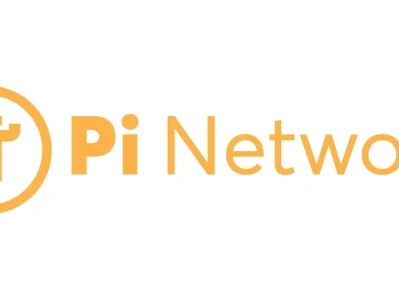So, Accenture just dropped a press release announcing they’re throwing some undisclosed pile of cash at an AI startup called Lyzr. The headline-grabbing promise, according to the release titled Accenture Invests in Lyzr to Bring Agentic AI to Banking and Insurance Companies, is to bring “agentic AI” to the thrilling worlds of banking and insurance.
I swear, my inbox gets a dozen of these a day. Some giant, soul-sucking consulting firm "invests" in a plucky little startup with a name that sounds like a ride-sharing app for lizards, all to “reimagine” an industry that’s been actively avoiding imagination for a century.
This time, the magic beans are “AI agents.” These aren’t secret agents in trench coats; they’re little software bots designed to automate… well, everything. According to the release, these agents will handle customer support, process insurance claims, and even auto-approve loans. It's pitched as the “next frontier” in financial services.
Yeah, a frontier where your mortgage application gets denied by a piece of code because you once bought a weirdly-shaped lamp on Etsy, and there’s no one to appeal to. What a glorious future.
So, What's an 'AI Agent,' Anyway?
Let’s translate the corporate-speak. Lyzr has built something called an “Agent Studio,” which they claim is a “full-stack enterprise agent infrastructure platform.” Try saying that five times fast after three beers. It’s a word salad designed to sound impressive to a C-suite executive who still thinks “the cloud” is just water vapor.
What it really means is they’ve built a toolkit so banks and insurance companies can create their own army of bots. And here’s the kicker: it’s for both “professional developers and no-code business users.”
Read that again. “No-code business users.”
This is just about efficiency. No, 'efficiency' is the clean word they use—this is about gutting departments. It means some project manager named Chad, whose only technical skill is making pivot tables, can now drag-and-drop together the AI that decides whether your insurance will cover your kid’s broken arm. This is like giving a toddler a power saw and a block of wood and hoping they build you a nice chair. What could possibly go wrong?
The examples they give are just terrifying. An agentic system that automates "policy renewals, endorsements, and mid-term policy changes." You know, the stuff that, when it goes wrong, leaves people homeless or bankrupt. Or how about banks building agents to "auto approve loans" and "fast-track customer onboarding"? Offcourse, they only talk about the approvals. What about the auto-rejections? Who’s accountable when the algorithm, built by Chad, has an implicit bias that locks out an entire demographic from getting a small business loan?

They talk about "unleashing the power of AI to create value," but value for who, exactly? For the shareholders, sure. For the person getting a rejection letter from a bot...
The 'Guardrails' Are Made of Tissue Paper
Now, I know what you’re thinking. Nate, you’re being a luddite. They must have thought about the risks. And you’d be right! They have a whole sentence for it. They claim Lyzr’s platform has “guardrails built in” so companies can “easily ensure that AI agents meet compliance and regulatory requirements.”
Give me a break.
That’s the most laughable, hand-waving dismissal of a monumental problem I’ve ever seen. The entire field of AI ethics is a raging dumpster fire of unsolved problems, but don’t worry, Lyzr and Accenture have it all figured out with some built-in “guardrails.” What are these guardrails made of? Hopes and dreams? Are they just a bunch of if/then statements?
Kenneth Saldanha from Accenture says these agents are “secure, explainable and compliant.” "Explainable AI" is a concept that the smartest people at MIT and Stanford are still struggling to define, let alone implement. But this platform has it ready to go for the insurance industry, one of the most complex, regulated, and ethically fraught sectors on the planet? It’s an insult to our intelligence.
This is pure marketing. It's a line you feed to a board of directors to get them to sign a seven-figure check. It's the corporate equivalent of a parent telling their kid the monster in the closet isn't real. It might make you feel better for a minute, but it doesn't actually solve the problem.
When one of these "no-code" AI agents denies a legitimate insurance claim for a family whose house just burned down, who gets fired? Who takes the call from the crying homeowner? Does the AI agent get put on a performance improvement plan? The entire pitch is a masterclass in abdicating responsibility. It’s designed to create a system where no single human is to blame, because "the algorithm" did it. And that, my friends, is the real "innovation" here. It ain't progress; it's a liability shield built from code.
I had to deal with a chatbot the other day just to change my internet plan. It took me 45 minutes of looping, nonsensical answers before I just started typing "HUMAN BEING PLEASE" over and over until it finally gave up and connected me to a call center. Now imagine that same frustrating, broken logic, but it holds the keys to your financial life. This isn't a slippery slope; it's a cliff, and Accenture is selling parachutes made of swiss cheese.
Then again, maybe I'm the crazy one here. Maybe this time it'll be different.
This Is Just a New Flavor of Snake Oil
Look, let’s be real. This isn't about helping you, the customer. This is about Accenture finding a new, shiny product to sell to its massive clients. They bought a stake in a startup with a hot buzzword—"agentic AI"—so they can go to every bank and insurance company and say, "Your competitors are automating. Don't you want to fire your expensive claims adjusters and loan officers, too? We've got just the platform for you." It's the same grift, new packaging. They're not selling a solution; they're selling a cheaper, faster way to say "no." And we'll be the ones stuck dealing with the fallout.

